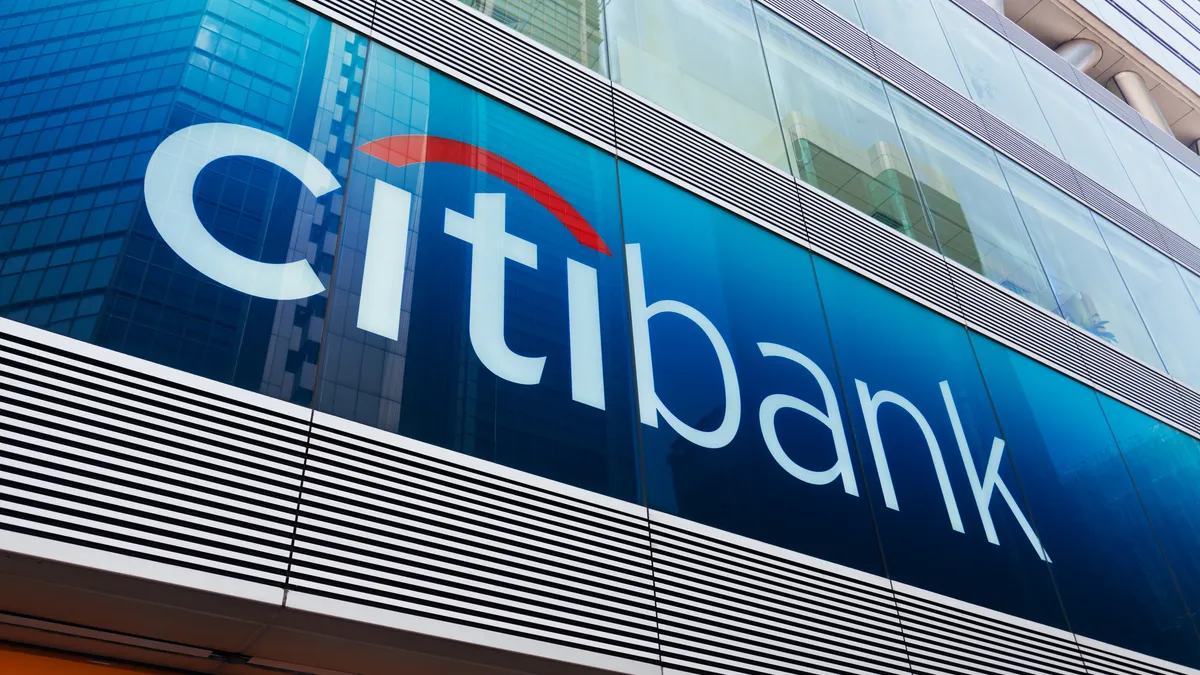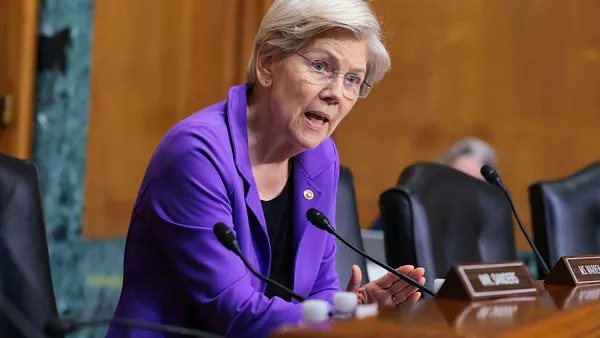Dive Brief:
- Citi's chief risk officer, Brad Hu, is stepping down at the end of the year, according to an internal memo seen Monday by American Banker, The Wall Street Journal and the Financial Times.
- Hu's departure after 12 years at the bank — the last eight overseeing global risk management — allows incoming CEO Jane Fraser to install her own selection to spearhead improvements in Citi's risk management, data governance and internal controls, which the Office of the Comptroller of the Currency (OCC) is expecting in the wake of a $400 million fine the regulator handed the bank last month.
- In the same memo, the bank announced 29-year Citi veteran Anand Selva would fill the global consumer banking chief role Fraser is vacating to become CEO. Selva has led Citi's U.S. consumer banking operations, which include the retail bank and Citi's card business, since 2018.
Dive Insight:
"We respect [Hu's] decision to align his own timing with the CEO transition and his desire for the function to reset as Jane leads the management team on the firm-wide transformation that lies ahead," Fraser and outgoing Citi CEO Michael Corbat wrote in the memo.
Corbat announced in September Fraser would take over the bank's top role in February. The prospect of regulator reprimand reportedly accelerated the timeline of Corbat's planned retirement. "This will be a multiyear effort, and I believe it is best for the firm for my successor to lead this important work from the beginning," Corbat wrote in a September memo.
Hu's departure also could buy the bank time in the eyes of regulators. In its consent order last month, the OCC reserved the right to require Citi to make changes to senior management and its board if it deemed the bank was addressing the reprimand too slowly. The Federal Reserve also demanded last month that Citi's board of directors submit a report within 120 days detailing how it will hold senior management accountable for the needed improvements.
A search for Hu's replacement is underway, a Citi spokeswoman told American Banker. Announcing an impending change now could signal to regulators that the bank is taking the reprimand seriously and is internally handling its own compliance — without the need for a push from the OCC or the Fed in the coming months. In return, Citi may count on regulators understanding that executive succession can take time.
In their memo, Corbat and Fraser called Hu "an outstanding CRO," saying he has "been instrumental in reducing Citi's risk profile and securing credit upgrades while helping guide [the] institution through significant geopolitical and economic disruptions."
Hu's work helped better prepare Citi in emerging risk areas such as climate change and cybersecurity, Corbat and Fraser wrote.
"He and his team have worked tirelessly to navigate through the pandemic, allowing us to support our clients while keeping credit costs at a reasonable level in an unprecedented environment," they wrote.
The bank has said it is spending $1 billion this year on improving its risk management frameworks and controls. One major component to that may be unifying the patchwork of systems the bank uses to track customers and transactions. Many of the bank's business units run their own system with separate customer identification measures — a money-laundering vulnerability, regulators have said — and some systems have roots in the late 1990s. The bank decided to replace its loan operation software last year, but the transition is not complete.
Citi's errant transmission of $900 million in August to creditors of cosmetics firm Revlon likely served as a reminder to regulators that long-standing risk management issues had yet to be fully resolved. That transaction may stand as a cautionary tale for the bank and a symbol of larger-scale issues.
In what may have been an earlier move to demonstrate progress in compliance, Citi in June hired former Bank of New York Mellon President Karen Peetz as its new chief administrative officer.
The bank is also searching for its next U.S. consumer banking chief. Under Selva, that segment saw retail deposits grow by 24%, on average, from the first quarter of 2019 to the third quarter of 2020, while assets under management jumped 22%, American Banker reported. Meanwhile, Selva led initiatives to create new banking products in partnership with the likes of Google and American Airlines.
"In the U.S., he has opened the door to what is possible for our franchise, and with the acceleration of digital he is the right leader to take us forward globally," Fraser said in a statement Monday, according to American Banker.
Selva previously oversaw consumer banking in 17 markets in Asia, Europe and Africa for Citi. Although Selva will fill Fraser's role as global consumer banking chief, her other title — president — will not be filled at the time of the transition, a Citi spokeswoman told American Banker.














